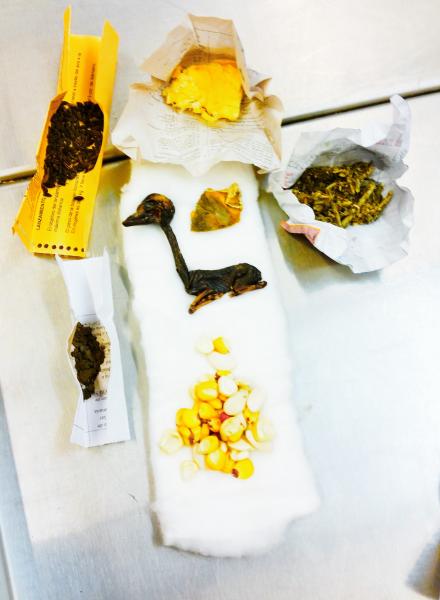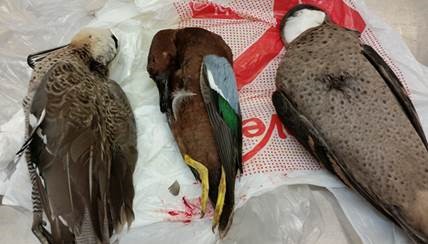Ducks, llama fetus, other banned agriculture goods found in luggage
HOUSTON – U.S. Customs and Border Protection Officers and agriculture specialists at George Bush Intercontinental Airport (IAH) in two separate incidents discovered several unusual prohibited agriculture items contained in international luggage, May 30.

bringing in these prohibited
items.
All seized items posed harmful risks to U.S. agriculture resources as they are known to carry harmful pests or diseases.
A traveler arriving from Peru declared to CBP officers that she had a llama fetus and various other agriculture products in her luggage. During an examination of the passenger’s luggage, CBP agriculture specialists discovered several packages including a llama fetus, fresh llama fat, llama skin, soil, various seeds, and tree bark. These prohibited items were seized but the traveler was not issued a penalty because she truthfully declared all items.
In a separate incident but stemming from the same flight from Peru, CBP officers discovered three dead ducks packed inside a suitcase that went unclaimed.

unclaimed suitcase.
All three waterfowl were submitted to U.S. Fish and Wildlife for disposition. Ducks are potential carriers of some types of communicable diseases, such as avian influenza. These diseases can be transmitted to other animals and humans, as well as, possibly being introduced into the U.S. commercial poultry industry directly affecting the nation’s food supply.
“Providing truthful declarations are beneficial to the passenger and the nation,” said CBP Port Director Charles G. Perez. “There is no penalties for the passenger and the prohibited items are seized and destroyed before affecting our nation’s agriculture resources.”
Travelers are encouraged to visit CBP’s website to learn about prohibited and restricted items before their travel begins. On a typical day in Fiscal Year 2016, CBP agriculture specialists discovered 4638 materials for quarantine including plant, meat, animal byproduct, and soil.


